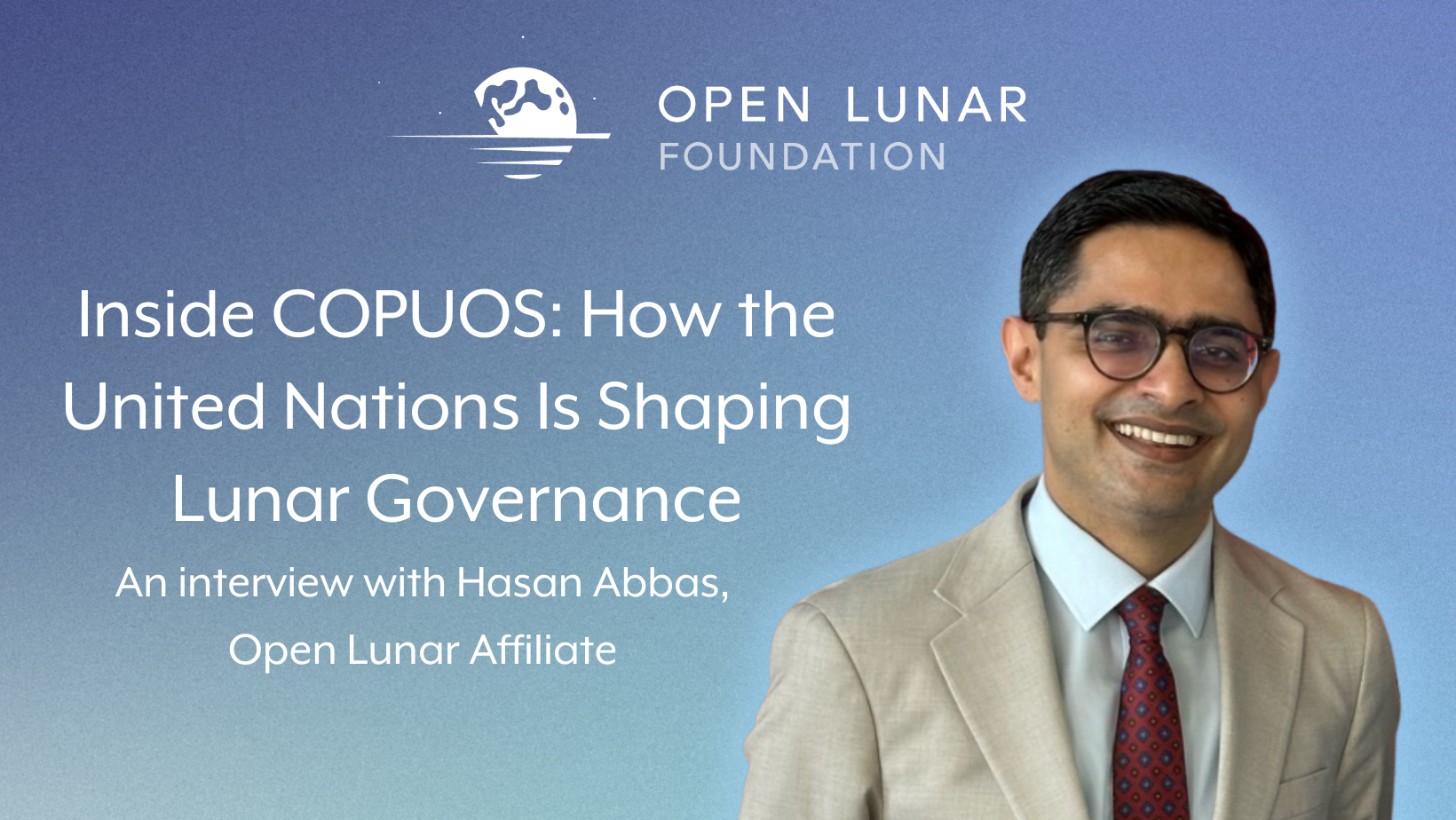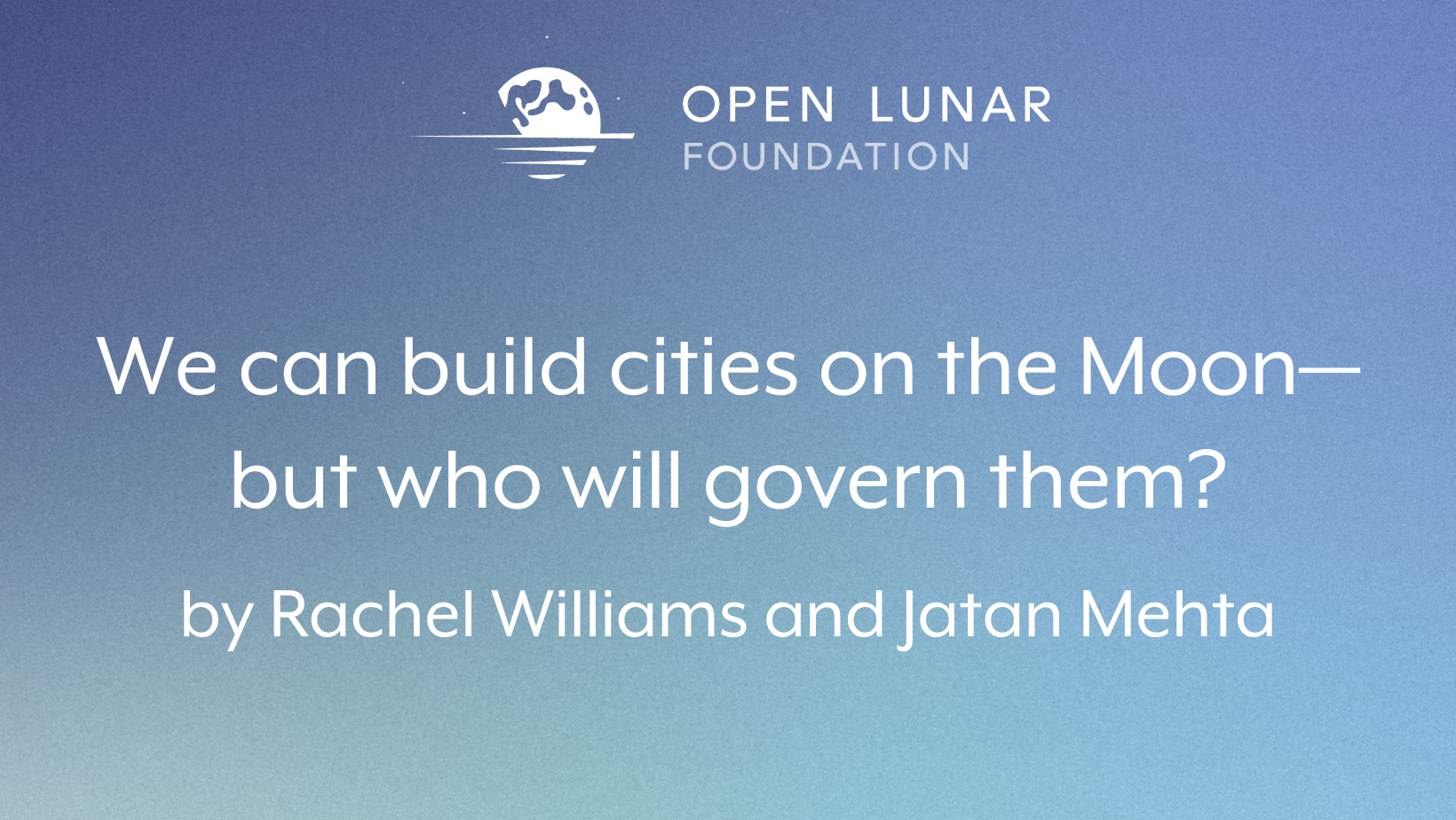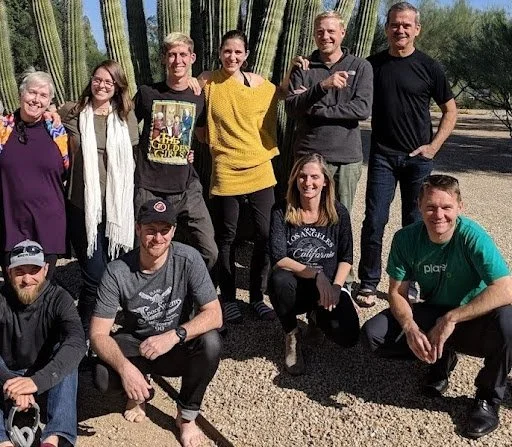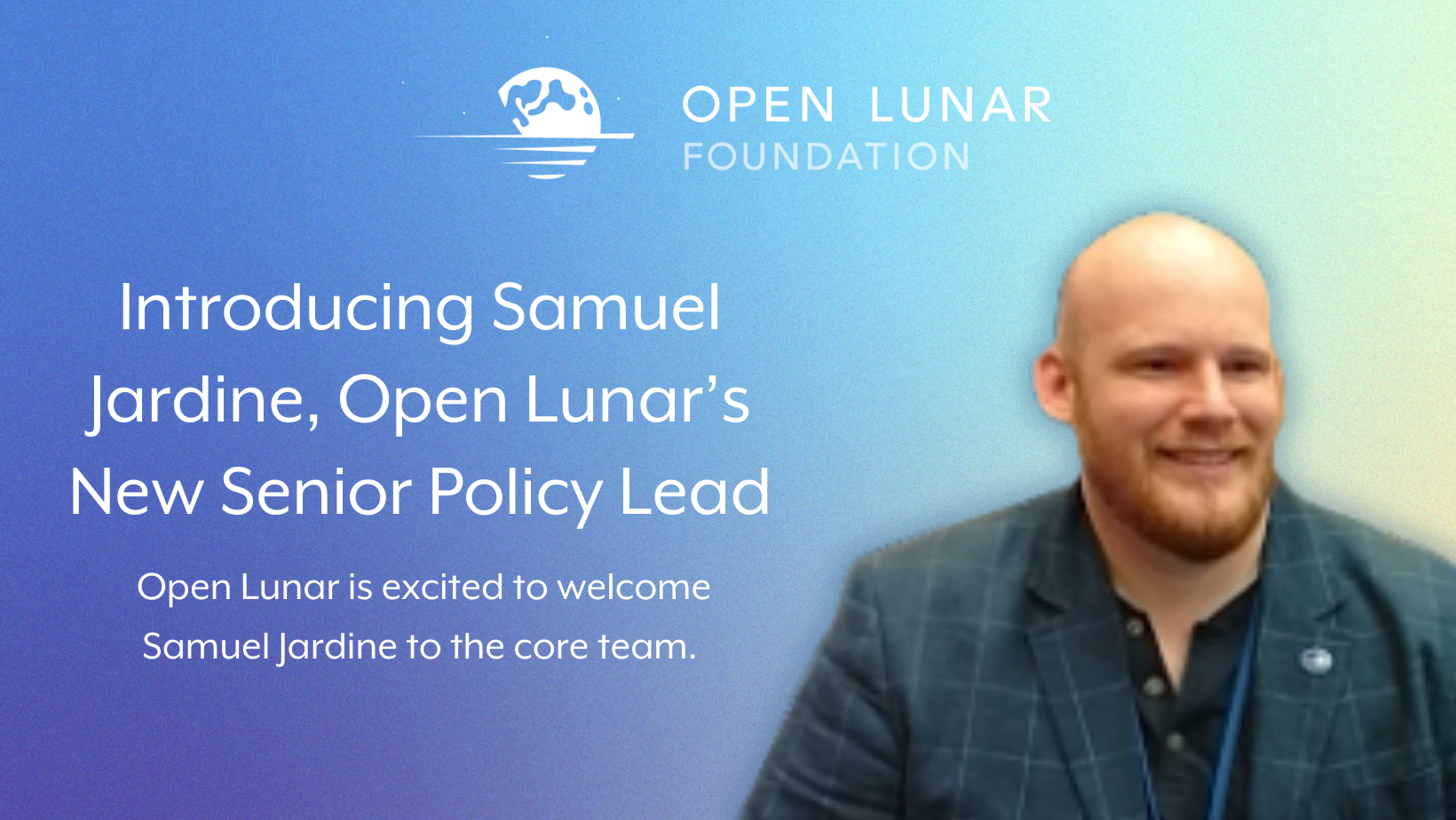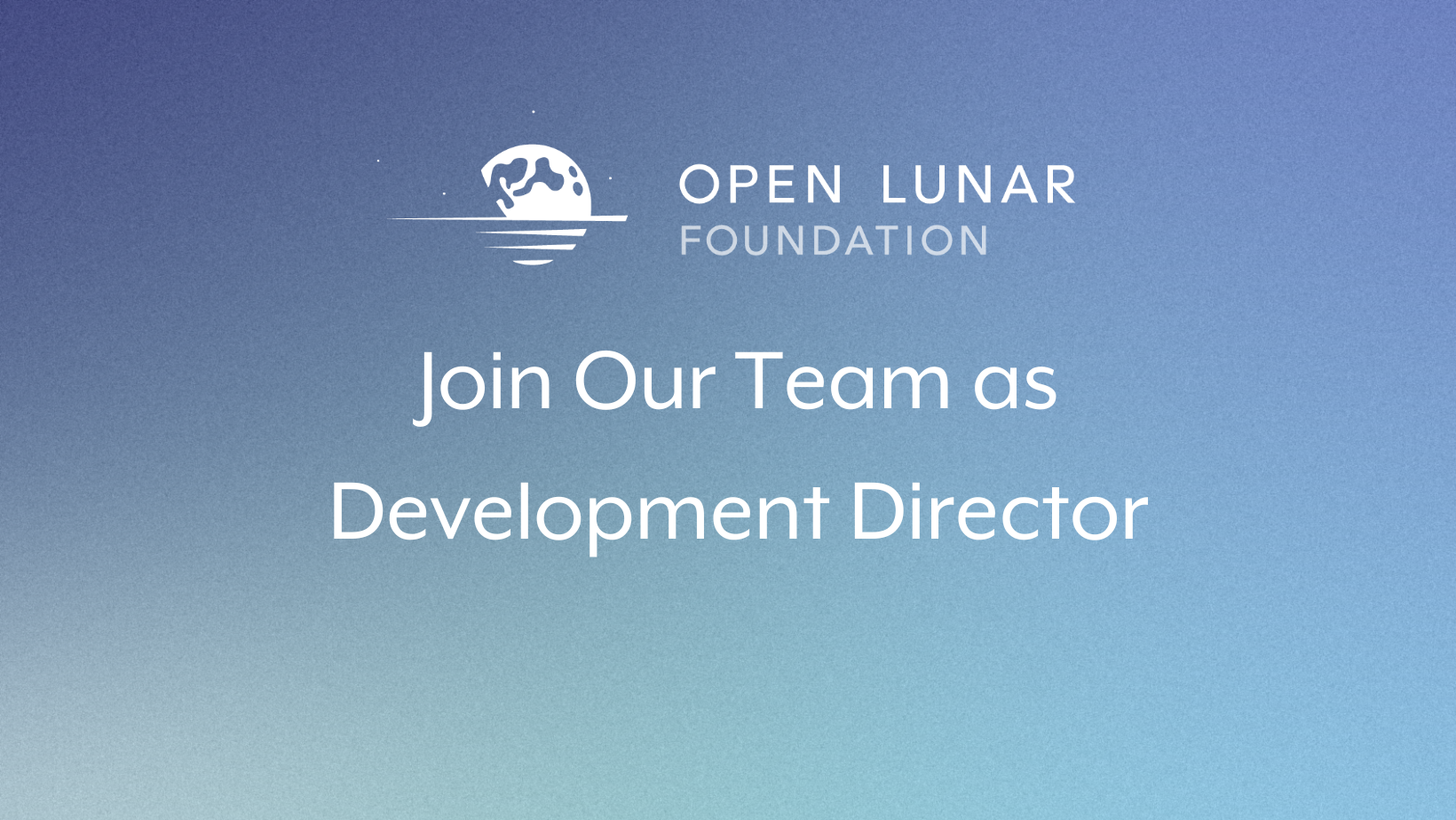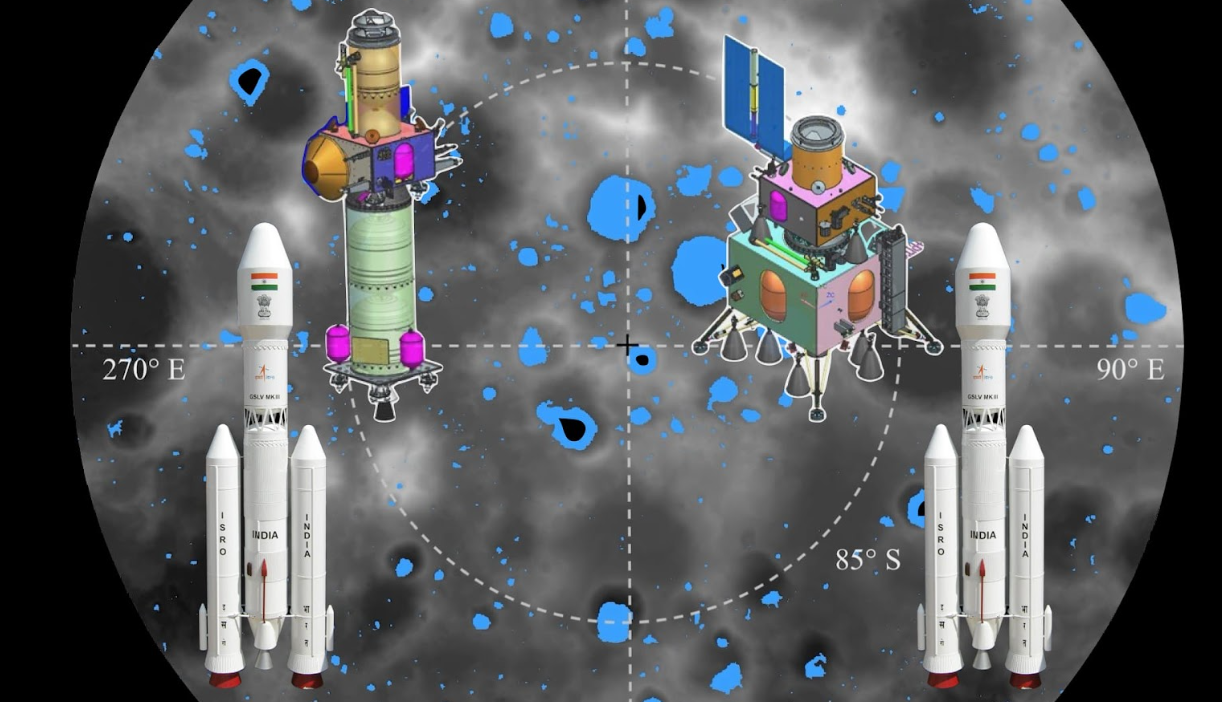
BlogRead the latest, stay in the know.
Explore news and perspectives on the Moon and lunar industry. Our blog publishes announcements and news, research, and expert views.
Inside COPUOS: How the United Nations Is Shaping Lunar Governance
In this post, we explore Open Lunar’s role as a Permanent Observer to COPUOS. We speak with Hasan Abbas about how the forum functions in practice and how today’s debates are shaping the future of lunar governance.
We can build cities on the Moon—but who will govern them?
Amid a global lunar rush, will we land peaceful norms alongside our spacecraft?
Open Lunar’s Origin Story
Open Lunar is a nonprofit founded by a global community—some of the field’s most experienced and visionary minds. Open Lunar is dedicated to ensuring that when humanity returns to the Moon, we do so in a way we can be proud of.
Introducing Samuel Jardine, Open Lunar’s new Senior Policy Lead
Open Lunar Foundation is excited to welcome Samuel Jardine to the core team. Read a welcome note from Sam and learn more about his background and position.
Join the Open Lunar Team as Development Director
Read more about our recent Development Director posting and what our team is looking for.
Achievements and shortfalls in global lunar exploration in 2025
Here’s a comprehensive, curated, and contextualized linked list of lunar technology and science developments across 2025, organized by country or region. There is also a section on progressive cooperative & collaborative international efforts—because these are the gems we need more of—as well as a section discussing shortcomings in the same. If someone asks you what’s happening at the Moon, say all of this is.
Hong Kong engages international planetary scientists with a lunar samples symposium
A volcano of new results which have improved our understanding of our cosmic companion.
Keeping time at the Moon
A new approach to lunar timekeeping—built from affordable commercial hardware, redundant clock networks, and shared open infrastructure.
Fellowship Research Showcase: Designated Lunar Areas
Every year, we work to collate our recent insights and share it publicly through our fellowship research showcase events. This event celebrates the launch of the Lunar Areas Field Guide by Christine Tiballi.
A giant leap in orbital imagery is what we need to realize advanced Moon missions
NASA’s Lunar Reconnaissance Orbiter has long been the foundation of lunar exploration, but its aging systems leave a growing data gap for future missions. Despite scientific calls for a successor, NASA hasn’t approved one, leaving newer international and commercial orbiters to fill the void. There is an urge for coordinated global efforts to share data and create a network of orbiters to better support upcoming Moon missions.
Cooperation Beyond Earth: Open Lunar at IAC Sydney 2025
Open Lunar joined the global space community in Sydney for the 76th International Astronautical Congress (IAC), sharing new milestones in lunar cooperation. From launching the Lunar Ledger to hosting a high-intensity governance simulation and advancing environmental monitoring with Honeybee Robotics, we helped shape conversations on how humanity can govern the Moon responsibly and collaboratively.
Lunar Ledger Launches with Industry Partners to Advance Transparency on the Moon
The Open Lunar Foundation has launched the Lunar Ledger, the world’s first open-access database of lunar missions and surface activities. Announced at the International Astronautical Congress in Sydney, the launch marked the signing of new cooperation agreements with founding commercial partners Firefly Aerospace, ispace, and Astrolab. Together, these early adopters have committed to sharing mission data through the Ledger — a major step toward transparency, coordination, and responsible lunar operations as activity on and around the Moon accelerates.
The case for India and China to exchange lunar samples from Chang’e and Chandrayaan
India’s upcoming Chandrayaan-4 mission aims to return lunar samples from the Moon’s south pole, positioning the country to join the global community of sample-return missions led recently by China’s Chang’e program. The article discusses how scientists could actively engage in studying Chang’e samples now, both to gain scientific benefits and to prepare for international collaboration and potential sample exchanges once Chandrayaan-4 succeeds.
We’re building future technologies for the Moon without closing missed milestones
A review of upcoming and past lunar missions of this decade shows a wide gap between notions of technological progress versus achieved reality.
Fellowship Topic Areas 2026
Our fellowships are a key part of Open Lunar’s innovation process. Through rigorous evaluation in accordance with our impact criteria, we have identified three key focus areas for our fellows in 2026. Fellowships will advance research in these key areas, impacting where Open Lunar continues to invest and building momentum to support further development of project areas.
Fellowship Research Showcase: Lunar Positioning, Navigation, and Timing (PNT)
Every year, we work to collate our recent insights and share it publicly through our fellowship research showcase events. This event celebrates the launch of the Lunar Positioning, Navigation, and Timing (PNT) research by Dr. Peng Hu.
The Open Lunar Fellowship Experience
Discover how our research fellowship program is helping advance key topics that are fundamental to realizing a peaceful presence on the Moon.
Science Does not Exist in a (Lunar) Vacuum
The Moon has yielded profound scientific discoveries through decades of international missions—from confirming its fiery origins to revealing water and recent volcanic activity. A new guide from the Lunar Policy Platform explores how we can preserve lunar science as a global commons through innovative governance approaches.
Transparent by Design: The Lunar Ledger Beta and the Future of Lunar Collaboration
The Lunar Ledger is paving the way for transparency and coordination in lunar activity. With our closed beta now underway, we’re sharing an inside look at the platform’s core features and how they lay the groundwork for a more collaborative future on the Moon.
Information Sharing Enables Cutting Edge Lunar Exploration
JAXA's SLIM achieved the most precise lunar landing ever in 2024 using shared data from ISRO's Chandrayaan 2 orbiter, demonstrating the power of international collaboration in lunar exploration. However, current lunar mission information sharing remains ad hoc and inefficient, prompting the Lunar Policy Platform to launch the "Lunar Information Sharing 101" initiative to establish better coordination frameworks.

